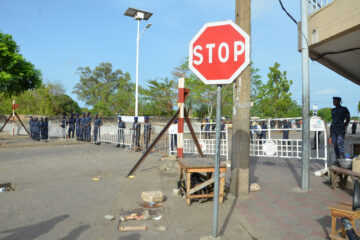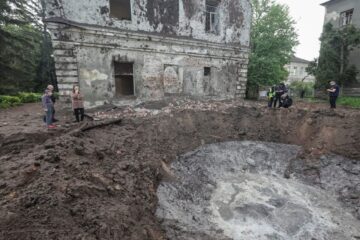Nearly 3,000 dead in Mediterranean already this year: IOM
Nearly 3,000 migrants and refugees have perished in the Mediterranean Sea already this year while almost 250,000 have reached Europe, the International Organization for Migration said on Friday.
The estimated death toll could put 2016 on track to be the deadliest year of the migration crisis. Last year the same landmark was only reached in October, by which time nearly one million people had crossed into Europe.
"This is the earliest that we have seen the 3,000 (deaths) mark, this occurred in September of 2014 and October of 2015," IOM spokesman Joel Millman told a briefing. "So for this to be happening even before the end of July is quite alarming."
Three out of four victims this year died while trying to reach Italy from North Africa, mostly Libya, a longer and more dangerous route. The others drowned between Turkey and Greece before that flow dried up with the March deal on migrants between Turkey and the European Union.
Nearly 2,500 fatalities have occurred since late March, with about 20 migrants dying each day along the route from Libya to Italy, Millman said. Most are from West Africa and the Horn of Africa, although they may include people from Pakistan, Bangladesh and Morocco.
"The (Libyan) coast guard has had some luck turning back voyages from Libya. We\’ve heard in the last six weeks a number of cases where they have been able to turn boats back.
"They (have also been) recovering bodies at an alarming rate," Millman said.
Some 84,052 migrants and refugees have arrived in Italy so far this year, almost exactly the same number as in the same period a year before, he said.
That indicated departures from Libya were at "maximum capacity" due to a limited number of boats deemed seaworthy.
But there is "a very robust market of used fishing vessels and things coming from Tunisia and Egypt that are finding their way to brokers in Tripoli," Millman said. "And you can actually go to shipyards where people are trying to repair boats as fast as they can to get more migrants on the sea."
Migrants in Libya are often held in detention centers, some run by criminal gangs and militias, he said. IOM officials seek access to detainees and authorization for their repatriation.
"There\’s no question that in some of this range of detention (centers) there are people in league with smugglers who are moving people toward the smugglers," Millman said.
SOURCE: REUTERS
[do_widget_area inner_adsbar]









